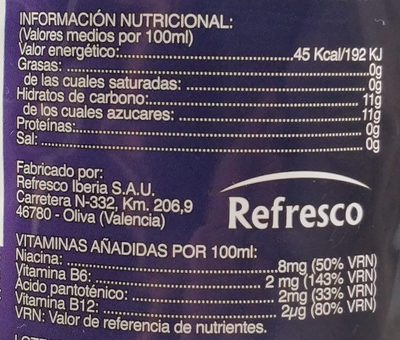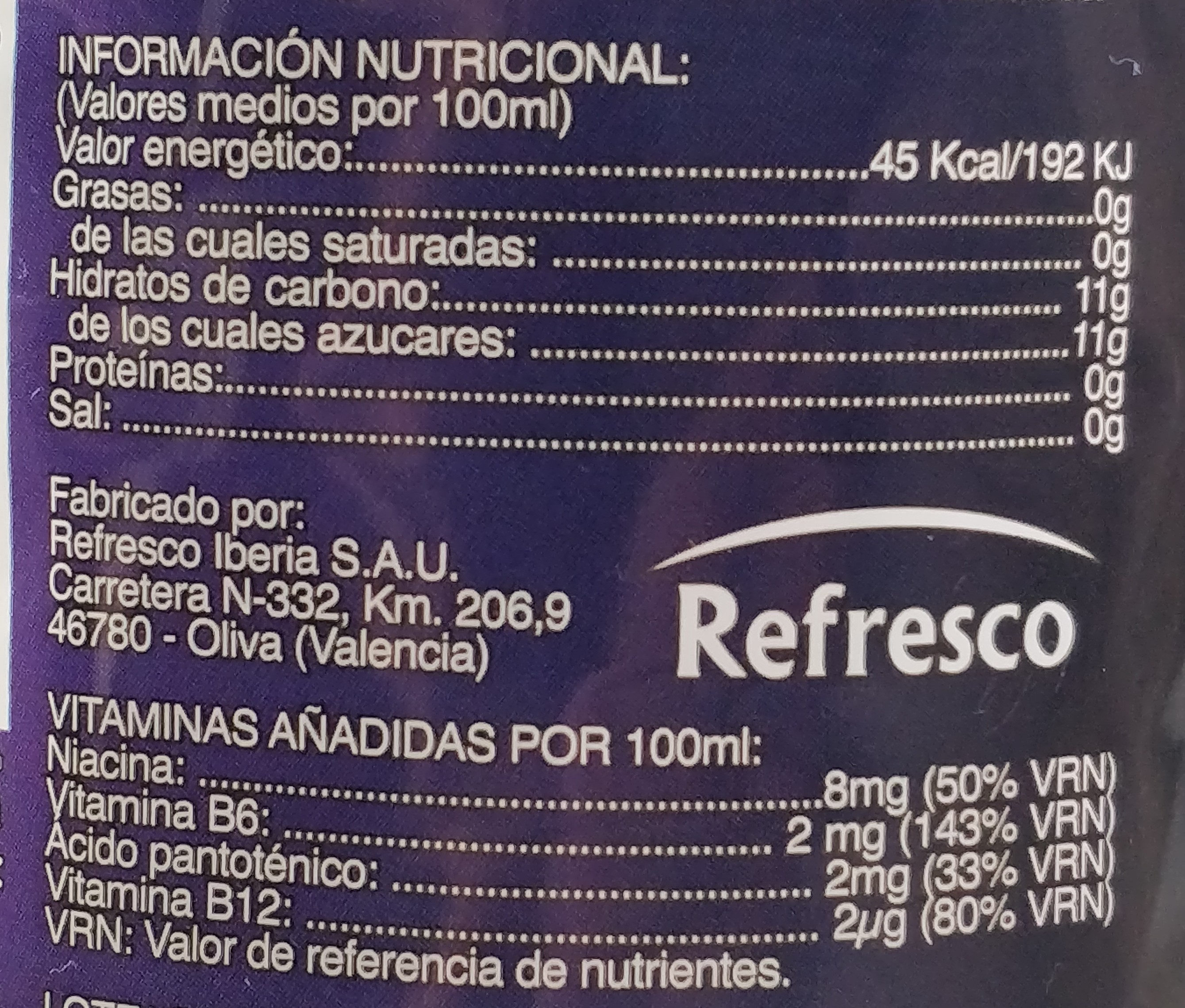Bebida energética - Hacendado - 1.5 l
Aquesta pàgina del producte no està completa. Podeu ajudar a completar-la editant-la i afegint-hi més dades a partir de les fotos ja disponibles, o fent-ne més amb l'aplicació de androide o iPhone / iPad. Gràcies!
×
Codi de barres: 8480000279453 (EAN / EAN-13)
Quantitat: 1.5 l
Marques: Hacendado
Categories: Begudes, Begudes sense alcohol, en:Energy drinks, Begudes ensucrades
Botigues: Mercadona
Països on es va vendre: Espanya
Matching with your preferences
Entorn
Empaquetament
Transport
Report a problem
Fonts de dades
Producte afegit per food4thought
Última modificació de la pàgina del producte per rafael18.
La pàgina del producte, també editada per acuario, kiliweb, musarana, openfoodfacts-contributors, teolemon, yuka.UmJzaVFZTWJqYVFFcWZGZzJoYms2TjFLbklTSVRFU0lJZVEvSUE9PQ.
Si les dades són incorrectes o incompletes, pot completar o corregir editant aquesta pàgina.










